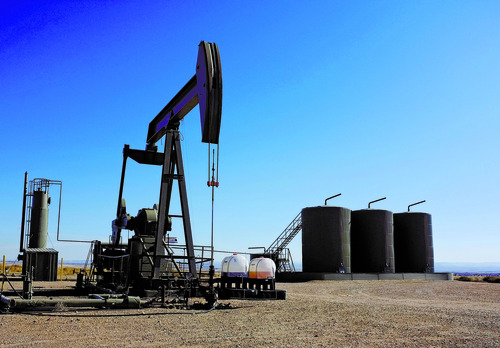This is an archived article that was published on sltrib.com in 2013, and information in the article may be outdated. It is provided only for personal research purposes and may not be reprinted.
Should Utah set aside money for a defense fund to challenge the federal government on environmental decisions that could limit oil and gas production in the state?
The powerful Executive Appropriations Committee met last week to consider such a defense fund, and the discussion was laughable in its limitations. Just one person, Jeff Hartley, a lobbyist for energy companies, addressed the committee.
Hartley delivered tales of fear about the feds pushing for endangered species protection for the sage grouse and the Graham's penstemon "to shut down energy production. They don't even try to hide it. It's blatant." He also said the Environmental Protection Agency will use "seasonal, episodic" increases in ozone levels to limit energy development in the Uintah Basin.
He told of one company that sold its mineral lease holdings because it took seven years to get permitting to develop them. "Companies will take their capital and move it elsewhere," he said, delivering the big threat.
Hartley is a lobbyist, and there is nothing wrong with that. He wants the state to hire industry-friendly scientists and lawyers to build the case for his clients, with jobs and taxes being the state's motivation.
Energy development is important. High paying energy-sector jobs are important. If it was really as simple as Hartley says, we would be right there with him. But legislators fail miserably when they stage these one-sided shows as some kind of an informed process.
The truth is more nuanced. Endangered species protections would limit energy production, but not kill it. And those ozone events may be seasonal and episodic, but they still damage lungs, just like they do along the Wasatch Front.
Hartley is right about companies moving their capital elsewhere, but not for the reason he says. The real driver is the volatility of global energy markets. The Uintah Basin has seen that volatility in a history of boom and bust cycles, none of which were caused by environmental regulation in the Basin. If energy prices drop — which has happened several times in recent decades — the companies will cut back just as they have in the past.
We beg legislators to give us a real process, one in which they hear from independent biologists and from the regulating agencies who have a legitimate mandate to care for America's lands and its biodiversity. Legislators need to make sure the birds, the flowers and rest of us are still here long after the drill rigs and strip mines have shut down.



